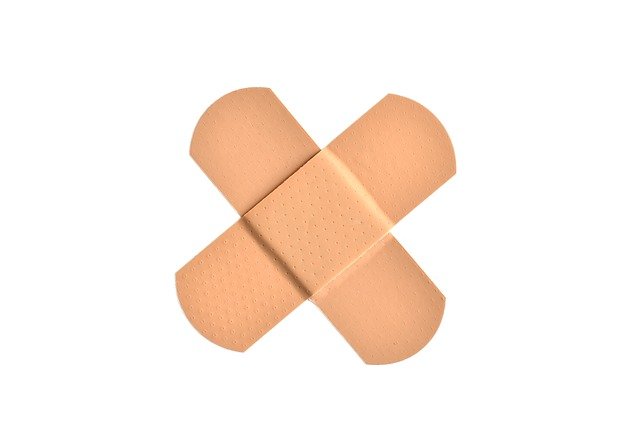Statistics indicate that the United States deals with about 300,000 to 500,000 injury cases each year. Meanwhile, the Justice Department has the mandate to categorize each personal injury to help with compensation grading and establish order in claims payment. Indeed, the procedure for personal injury claims can delay due to several factors within and beyond human control. The list below discusses some of these factors that could affect your personal injury claim.
- The severity of injuries

In many cases, the extent of injuries determines how fast or slow your personal claim would be processed. Usually, the insurance claim attorneys would want to evaluate the permanent nature of the injury and how it impacts your daily life. For example, if a person suffers a spinal cord injury, the medical doctor, insurance carriers, as well as other relevant parties like to have full details of the damage. This enables the necessary vitals to calculate how much can be paid out in compensation. This is why the payment received for a laceration is usually lower than a fracture or bone dislocation.
Furthermore, while assessing the severity of injuries, other elements looked out for are disfigurement, disability, and visible scarring. It may seem quite unfair and insensitive for these parties to base compensation on these issues. However, it is the required procedure to ensure that the victim receives what is rightfully due to them.
- Total medical bills
How much you spent on the medical bills after the injury is another factor impacting your personal injury claim. The truth is, medical care in the United States can be costly, with or without health insurance. Perhaps, people with medical insurance may not feel the pinch much compared to those who may have to pay for healthcare from their pocket. If the injuries sustained were expensive, it is expected that medical bills would be higher and more expensive. No one knows what will happen to them from one day to the next, so when there is a medical issue, insurance is critical, just like a 995 plan from Colonial Penn and others like it is for those who are thinking ahead to their future and their families.
So, if you’re looking for immediate or instant compensation after an accident, you may have to wait a while longer until doctors notice a medical improvement. Under normal circumstances, your medical bills will determine how much should be paid to you. But at this stage, it is better for your bills to accrue or accumulate to help decide the final amount. The last thing you want is to receive insufficient compensation while you continue to spend so much on hospital and medical bills.
- The severity of the property damage
In insurance terms, property damage is categorized under personal injury. Moreover, this categorization is done in the event of a car accident. The delay in claims payment is usually due to the wait involved in calculating all other damages that resulted from the accident. Understandably, you may be expecting your compensation payment to offset the cost of repairs, among others. However, it is in your interest to wait for proper calculation. Moreover, you stand to benefit a lot more when all factors are taken into consideration before the check is issued for your claim payment.
If you have a good attorney, you may be counseled on the benefits of enduring the waiting period. Rushing the process only increases the chances of hurting what you are rightfully owed under the circumstances.
- Location of the lawsuit

Where the lawsuit is filed can impact the overall outcome of your personal injury claim. This is because every state has its peculiar procedures guiding the processing of personal injury claims. In other words, what pertains in one state may be significantly or slightly different from another. The differences may range from the average amount of compensations in that geographical location to how matters of that nature are resolved.
For example, in Arizona, many of these personal injury lawsuits are settled out-of-court to avoid the long-winding court processes they may come with. Also, in Arizona, such lawsuits carry higher compensations than anywhere else in the United States. This is closely followed by Washington D.C., New York, Ohio, and Manhattan.
On the flip side, places like Texas, Arkansas, and Atlanta have average compensation rates for victims who apply for personal injury claims. Once again, you may want to avoid rushing the process when you find yourself in a new state and need to apply for a personal injury claim.
- Precedence in similar cases
Most law courts rely on precedence in adjudicating cases to arrive at a favorable decision for one or all parties involved. This strategy usually saves time and resources. You may wonder how this is possible, especially when no two cases are the same. The answer to this lies in the similarities of the cases. If the case resembles another already solved in the past, the judge finds it easier to take relevant pointers.
Access to past verdicts is helpful in this regard. Moreover, your personal injury attorney may find it worthwhile to study past cases and the rulings made for each one. In other words, it is better to know what you are up against than to be caught unawares.
It can be better to use precedence as it is a time-saving strategy when resolving court cases. If there’s been a hearing of a similar case, most of the work is already done. Past verdicts and personal injury cases could help a judge or a jury lean a certain way.
- Sufficiency of evidence available
As with all court cases, evidence is crucial to the overall outcome. It is therefore no different from when you file your personal injury claim. Remember that the insurance company, defense attorneys, and other vital parties involved in the case will demand sufficient and irrefutable evidence to prove whether or not you deserve the amount you’re filing for as compensation. If your law firm or attorney uses legal legal practice management or other similar tools to streamline their practice, storing evidence securely becomes easier. These software solutions are usually operated via the cloud which means that tampering or accessing of these files by third parties may not be possible, ensuring that the evidence remains clean and usable in court. When litigating a personal injury case, courts and insurance companies require solid evidence supporting your claim, so having these mechanisms in place can also benefit you. Therefore, if you have little evidence to support your case, the possibility of waiting longer is high.
- Possibility of continued work or not

A personal injury can be mild, moderate, or severe. Moreover, the extent of injuries will also determine whether you can continue to work or not. If the latter is your scenario, the parties involved will want to ascertain the veracity of your health status. When all conditions have been met, the discussion on when and how much to pay you can be concluded.